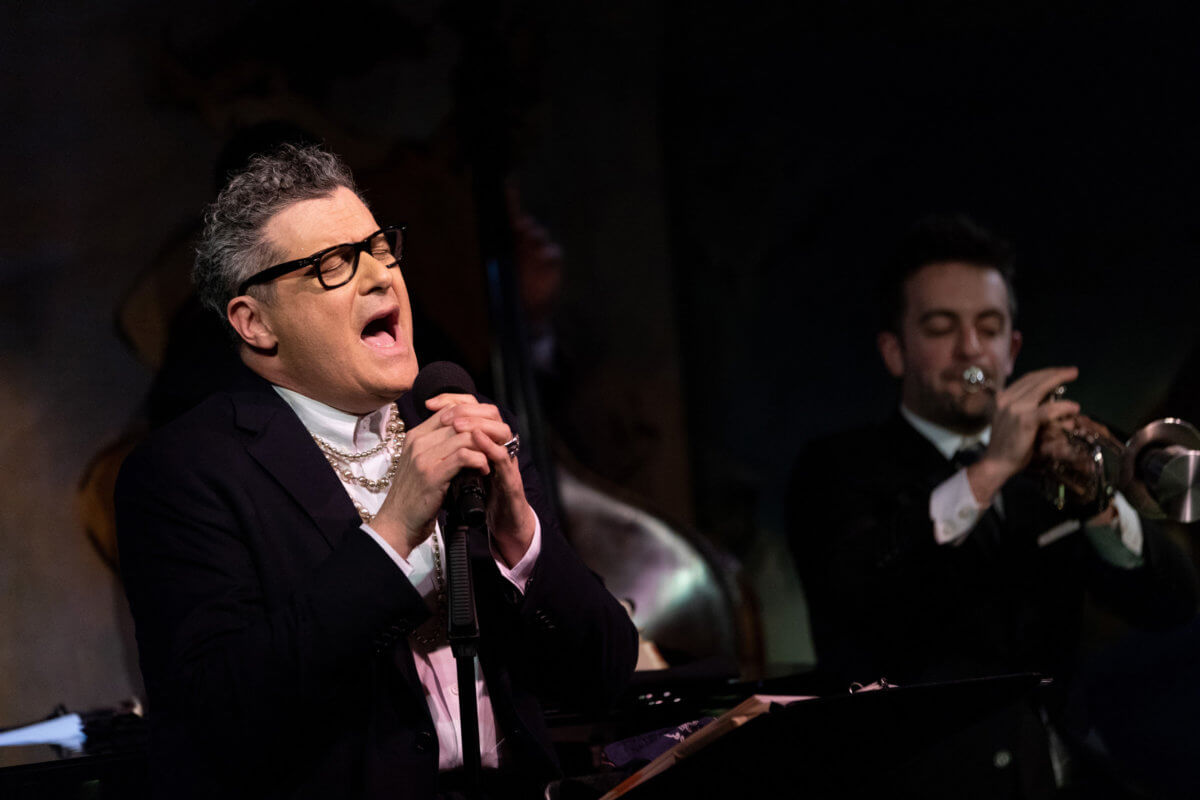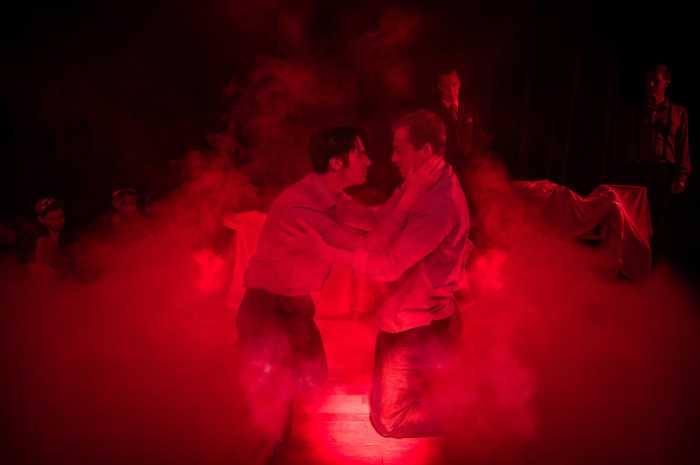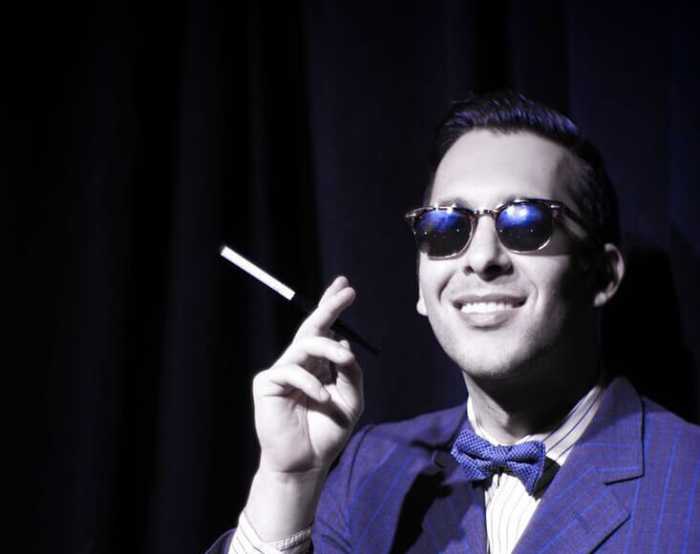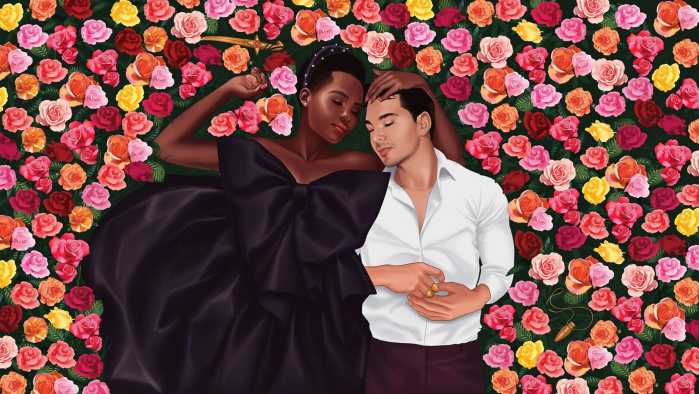For a kid who was discouraged from going into show business, Isaac Mizrahi certainly beat the odds.
“My parents didn’t want me in that business and they were really afraid of any of their kids going into show business,” Mizrahi says. “It’s hard and heartbreaking, and a million to one that you are going to make it — that was the message.”
Yet Mizrahi found his way to success. For over 30 years he has been a force in the fashion, television, media, and entertainment world, developing the Isaac Mizrahi brand that made him not only a fashion icon, but a TV star (a judge on “Project Runway All Stars” and host of his own show, “The Isaac Mizrahi Show”) while regaling audiences with his cabaret act at the Café Carlyle in Manhattan and theaters across the country.
His ISAACMIZRAHILIVE! line, launched on QVC in 2009 under the Xcel Brands Inc. umbrella, is going strong, and he continues to express himself through music, writing, books, cooking, and his production company.
Mizrahi says he is currently most excited about several projects in development: “One, a scripted series, and the other, two more of a reality thing.”
We caught up with Isaac Mizrahi via Zoom from his home in Bridgehampton where he has spent most of the past year. His passions and talents seem endless, and he says he “works to relax.” At once affable, energetic, self-effacing and hilarious, he exudes love for New York City and the Hamptons, his husband Arnold Germer, and their two dogs (not necessarily in that order).
Does it surprise people that you love to sing, and is this something you always did?
I collectively look at myself as a kind of performer — I always have been.
My whole life I’ve been doing female impersonations — Streisand and Judy Garland impressions — I started when I was eight years old. It was not a source of pride in the family to have this little female impersonator in Brooklyn.
I’m not Christina Aguilera or that kind of “American Idol” singer. I really try to hold my own with the music, and it feels so great to do it. I’m not sure if I’m good or bad, but it doesn’t matter — it has to be to be fascinating to watch this crazy person on stage.
Describe your act and the music you favor.
I work with incredibly distinguished jazz musicians, and what we do is a kind of classical jazz arranging of all kinds of songs, from Irving Berlin to Madonna. The shows I do are strung together with these songs and a lot of stories and dirt that I tell on stage. That’s really what’s fun — connecting with the audience.
What was life like for you growing up in Brooklyn?
I come from a Sephardic Jewish background in Brooklyn — they’re sort of affluent, they don’t look like typical Orthodox Jews. When I was growing up, my parents really weren’t orthodox but the Yeshiva that I went to (Yeshiva Flatbush) was. It was very, very confusing.
It couldn’t have been in a worse environment for me growing up. I don’t know how I did it. I got very good at defending myself. It wasn’t just bullying that happened from my peers — rabbis were bullying me, parents were bullying me — they didn’t know what to make of me. Like I said, I was doing female impersonations, and I had puppet shows and I used to draw these crazy pictures and was always having tantrums. I was a monster because I was in the wrong environment.
This one teacher was so wonderful. She understood I was in the wrong place. She helped me get to the Performing Arts High School in Manhattan. It was one of the great experiences of my life. It made me who I am today.
How did the fashion part of you come out and evolve?
I’ve always been good at it. I started making puppets, and I was good at sewing, and learned how to sew that way.
My father was in the children’s clothing business, and I was raised to believe that movie stars were these gorgeous people, and I was also raised to believe that I wasn’t so beautiful. There were all these really gorgeous kids in my class and then there was me: I was really fat. I lost about 75 pounds when I was a sophomore in high school.
I was just convinced that there would be no money in show business, so I decided to change gears. My mom was obsessed with fashion, and I really loved it, too. I think it was an extension of my mother — the magazines, her own obsession with clothes, constantly shopping with my sisters. It was kind of a family obsession.
I went to Parsons (School of Design), and then directly out of Parsons I got the best job. I worked for Perry Ellis, and I worked for him for a long time, then all these other jobs until I started my own company in 1986.
What was it like for you coming out?
It did not go well. My mother told me, “Don’t tell your father,” and the shrink I was seeing said, “Don’t tell your father.” I felt very absolved — ”This is not my decision to make; I am not telling my father, woo-hoo!” I’m not going to say that I was lucky at 20 when he died, but it was a circumstance that made it much easier for me to be the kind of human that I am.
My mother went out and found every book she could find about gay people. She was disappointed; she cried, of course. I think even now she is still not going to let go of this concept of who I was meant to be in her life. I feel very bad for her — it’s not easy to live with that.
I feel legitimately that I am a very early gay advocate and icon. I remember when I first started in 1986, everyone was so scared that I came out in this cover story in New York magazine. This guy who I used to work with at Calvin Klein, a publicist, said, “Oh darlin’, I’m so sorry they outed you!” Three years later there was a cover story on k.d. lang with the headline “lesbian,” and I saw that publicist, Paul, at a cocktail party, and I said, “See that, Paul, I was a lesbian way before k.d. lang!”
How is married life?
It’s fantastic. I have to say it was hard over the pandemic — Arnold wanted to get back to the city, I was primarily out east, but we worked it out and we are so solid right now. I am the luckiest thing. I have the best husband. (They married in 2011).
You were honored by the Animal Rescue Fund of the Hamptons in 2019 with the ARF Champion of Animals Award. What is it about dogs that you love so much?
They are so funny — they just make me so happy. We have two dogs, Dean who is a senior (15 or 16) and Kitty, who is about 5.
Part of what made me a permanent resident of Bridgehampton is my involvement with animals. In 2000, when we got Harry from a rescue, that’s when I began to come here in the middle of the winter for days; otherwise I was too scared to be alone, but with Harry (who is since gone) I just felt this was a great place. He loved it. And I love it. And then when Arnold and I married, he got Dean.
What are you most proud of?
When we got our dog Kitty, named after Kitty Hawks who brought me into the world of rescue dogs, she was very skittish, terrified, and within the first two to three years, she was good. She is now the most well-adjusted, hilarious girl — that’s what I’m most proud of.
For more info about Isaac Mizrahi’s collections and career/schedule, visit his website helloisaac.com.



































